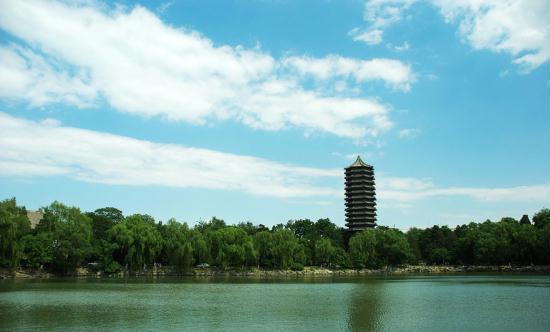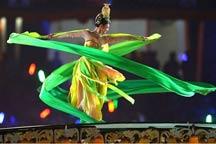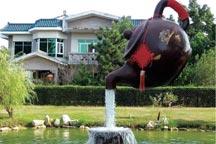Yenching University was a notable university in Beijing, China. It integrated three Christian colleges in the city in 1919. Yenching is an alternative name of Beijing (Peking) - derived from its status as capital of Yan state, one of the seven Warring States from 5th century BC to 3rd century BC.
The university was originally founded under the name of Peking University. In its early years, it was in a chaotic situation, due to its financing by several different churches.
 |
| Yenching University was a notable university in Beijing, China. |
John Leighton Stuart was appointed as the principal of the university in January 1919 when he taught Greek language in Nanking Theological Seminary (金陵神學院), a seminary in Nanjing, China. Being short of capital at the beginning, he turned to fundraising worldwide and received support from the estate of Charles Martin Hall, an American executive of Alcoa Aluminum. He bought the royal gardens of Qing to build a scenic campus and employed gardeners from the Imperial gardens. In 1926 the campus was completed. Theology, Law and Medical were the main schools in the university, with Arts and Science studies.
Stuart attracted major Chinese and Western scholars to teach. Religion was not a qualification, although Stuart gave major support to the School of Theology. In 1928 the Harvard-Yenching Institute, was jointly founded by Yenching University and Harvard University for the education of humanity and social science in East Asia and Southeast Asia. This independent institute continues to exist on the Harvard campus in Cambridge, Massachusetts. Also in 1928, American journalist and educator Walter Williams established a department of journalism.[1] By 1930, the school was among the top universities in China, its teaching distinguished itself by a considerable academic freedom.
After the People's Republic of China was established in 1949, Yenching University with its Christian background was closed. Its arts and science faculties of Yenching were merged into Peking University, and its engineering section was merged with Tsinghua University, and Peking University obtained the Yenching campus. In 1952 Peking University moved from central downtown Beijing to the previous Yenching campus in the city's Haidian district.




















